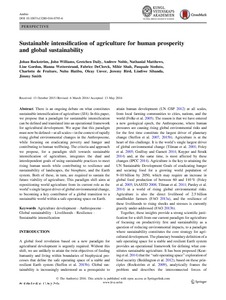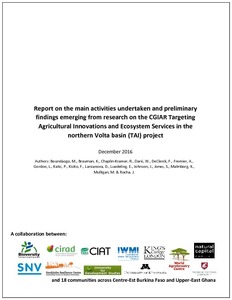Location
The International Water Management Institute (IWMI) is a non-profit, scientific research organization focusing on the sustainable use of water and land resources in developing countries. It is headquartered in Colombo, Sri Lanka, with regional offices across Asia and Africa. IWMI works in partnership with governments, civil society and the private sector to develop scalable agricultural water management solutions that have a real impact on poverty reduction, food security and ecosystem health. IWMI is a member of CGIAR, a global research partnership for a food-secure future.
IWMI’s Mission is to provide evidence-based solutions to sustainably manage water and land resources for food security, people’s livelihoods and the environment.
IWMI’s Vision, as reflected in the Strategy 2014-2018, is ‘a water-secure world’. IWMI targets water and land management challenges faced by poor communities in the developing countries, and through this contributes towards the achievement of the United Nations Millennium Development Goals (MDGs) of reducing poverty and hunger, and maintaining a sustainable environment. These are also the goals of CGIAR.
IWMI works through collaborative research with many partners in the North and South, and targets policymakers, development agencies, individual farmers and private sector organizations.
Resources
Displaying 61 - 65 of 959Tana River Basin, Kenya: geodatabase and mapping tool. User guide
Sustainable intensification of agriculture for human prosperity and global sustainability
There is an ongoing debate on what constitutes sustainable intensification of agriculture (SIA). In this paper, we propose that a paradigm for sustainable intensification can be defined and translated into an operational framework for agricultural development. We argue that this paradigm must now be defined—at all scales—in the context of rapidly rising global environmental changes in the Anthropocene, while focusing on eradicating poverty and hunger and contributing to human wellbeing.
Reviving the Ganges water machine: potential and challenges to meet increasing water demand in the Ganges River Basin
Although the Ganges River Basin (GRB) has abundant water resources, the seasonal monsoon causes a mismatch in water supply and demand, which creates severe water-related challenges for the people living in the basin, the rapidly growing economy and the environment. Addressing these increasing challenges will depend on how people manage the basin’s groundwater resources, on which the reliance will increase further due to limited prospects for additional surface storage development.
Report on the main activities undertaken and preliminary findings emerging from research on the CGIAR Targeting Agricultural Innovations and Ecosystem Services in the northern Volta basin (TAI) project
The CGIAR Water, Land and Ecosystems research project on Targeting Agricultural Innovations and Ecosystem Services in the northern Volta basin (TAI) is a two year project (2014-2016) led by Bioversity International in collaboration with 11 institutes: CIAT, CIRAD, International Water Management Institute (IWMI), King’s College London (KCL), SNV World Burkina Faso (SNV), Stanford University, Stockholm Resilience Centre (SRC), University of Development Studies Ghana (UDS), University of Minnesota, University of Washington, and the World Agroforestry Institute.







